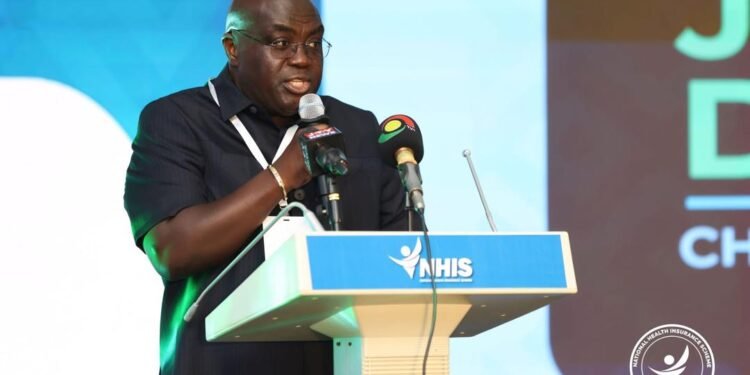Recent allegations of piracy and intellectual property theft have surfaced, with Nigerian actors accusing their Ghanaian peers of infringing on their work.
While these claims initially seem rooted in legitimate concerns over the protection of creative content, a closer examination reveals that they are more about chasing clout and garnering attention in an industry that thrives on visibility and public discourse.
The Executive Secretary of the National Film Authority (NFA), Kafui Danku, has cast doubt on the sincerity of recent piracy allegations from some Nigerian filmmakers, hinting that the public complaints may be more about chasing clout than addressing the problem.
Kafui revealed that the NFA is working closely with the National Communications Authority (NCA) and the Ministry of Communications to combat piracy.
However, she criticised the trend of Nigerian filmmakers attacking Ghanaians and Ghanaian institutions online without providing credible evidence.
“I know this is a major problem we’ve been trying to work on. We’ve met with the NCA, the Minister of Communications, and others. There’s work in progress. But when these Nigerians recently post and abuse the whole country or abuse the institutions without evidence, I am tempted to believe that maybe they are beginning to use us to chase some clout.”
Kafui Danku
She cited the April 2025 case of Nigerian actress Bimbo Ademoye, who accused certain Ghanaian television stations of airing her films without permission.

According to Kafui, she reached out to Bimbo to request proof that could aid investigations, but was told it was no longer accessible.
“Because recently, after Bimbo lashed out and we reached out to her, I later went on UTV, and she saw a headline where I said I reached out, but she did not respond. She got in touch, we started chatting, and I asked her, Can I have the evidence so we can put it on file and then start working on it?”
“She told me that whoever sent that message sent it to her in a disappearing mode, which I think is ridiculous. But I didn’t want to stretch it out because if they are truly using us for some sort of attention, it is working.”
Kafui Danku
The piracy problem in Ghana’s entertainment industry is once again making headlines, with filmmakers from both Ghana and Nigeria expressing frustration over the unauthorised use of their work.
Over the years, several Ghanaian and Nigerian filmmakers, including Mercy Johnson, Xandy Kamel, Omoni Oboli, and others, have accused certain Ghanaian television stations of airing their movies without permission.
Impact of Piracy on Industry Relations

The ongoing discourse surrounding piracy claims has the potential to strain relations between Nigerian and Ghanaian actors, further entrenching the rivalry between the two countries.
Instead of fostering collaboration and mutual support, these allegations create an atmosphere of distrust and competition. This is particularly concerning given the potential for cross-border partnerships that could benefit both industries.
Collaborative projects and co-productions could lead to richer storytelling and greater cultural exchange, but the focus on piracy claims hinders such initiatives.
Furthermore, the emphasis on clout chasing detracts from the real issues facing the film industry, such as the need for better copyright laws, improved distribution channels, and greater investment in local content.
By framing the conversation around piracy in a sensationalized manner, the industry risks overlooking the structural changes necessary to protect artists and their work effectively.
While piracy is a genuine concern within the film industry, the recent claims made by Nigerian actors against their Ghanaian counterparts appear to be driven by a desire for clout rather than a sincere commitment to combating intellectual property theft.
As the entertainment landscape in West Africa continues to evolve, artists must prioritize collaboration and innovation over rivalry and sensationalism.
The future of African cinema depends on the ability of its artists to rise above petty disputes and embrace the power of collaboration in an increasingly interconnected world.
READ ALSO: Government’s 2025 Deficit Target at Risk Despite Strong First-Half Expenditure Restraint























